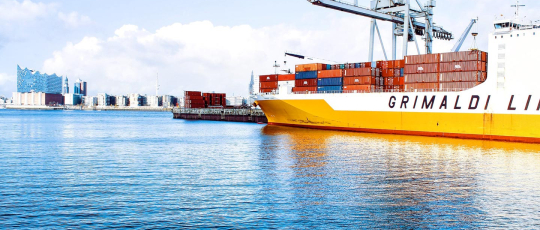
Aside from your product, there are two primary things you need to have in order to successfully export goods to other countries. The first and foremost is organization. Your company, specifically operations-related personnel, should be extremely organized. Exporting goods requires all necessary details to be accurate and easily referenced. These can be organized into one central database that holds all client information, including payments, shipments, and orders.
Secondly, you need a stellar logistics team. Logistics professionals have relationships with freight forwarders to get your company the best services for your needs at the best price. They are also trained to properly package and ship your product to the right place in a timely fashion. Properly packaged shipments are important to the success of your goods arriving at the location by the promised delivery date.
If you do not have an in-house logistics team, you may want to consider hiring a logistics company or reaching out to your contract manufacturer for assistance. A CM sometimes will provide logistics services – be sure to find out when you qualify your EMS provider. Whether in-house or outsourced, having an outstanding logistics team is crucial for your company's international success.
6 Things You Should Know Before You Start Exporting Products
-
Packaging and Documentation
The most important thing to pay attention to when sending goods is your shipment's packaging and documentation. When exporting to other countries, your shipment will be inspected by Customs before entering into the desired country. Customs reviews all imported goods to ensure only approved items enter the country.
To avoid any delays during the inspection, make certain your shipment is properly packaged and labeled. If your shipment does not clear Customs, it may not meet the delivery date costing you time and additional money. -
For most international shipments, the minimum documentation required includes an export invoice, dangerous goods note, applicable licenses, and an EEI filing. Each country has their own set of fees and documents needed in order to import goods. It is important learn the specific laws and requirements of each nation you are shipping into. A good reference is the U.S. Customs and Border Protection website for further information pertaining to importing and exporting goods.
There are many documents required in order for a package to ship across borders. Fortunately, many of today’s shipping platforms are built to confirm that all necessary documentation is included to ensure your export shipment is accurate.
-
Incoterms
Incoterms, which is short for International Commercial Terms, were created in 1936 by the International Chamber of Commerce to help make international and domestic trade easier. There are eleven different incoterms, each outlining which party (seller or buyer) is responsible for which documents, taxes, fees and risks that apply to any commercial shipment. Some are specific to ocean or air travel while others are applicable to any mode of transportation. It is vital that you be clear with both your customer and freight forwarder about which incoterm you are using so that the correct party is held accountable.
-
HS/HTS Codes
HS/HTS codes were developed by the World Customs Organization to classify traded goods. Every package that is shipped across international borders for sale or trade must have an HS or HTS code assigned to it to let Customs know what is inside. These codes are extremely specific, so make sure you carefully choose the correct one. Conveniently, the US International Trade Commission website has all the codes listed.
-
Tariffs and Fees
There are many tariffs and fees that apply to international shipments. These may be related to the specific HS/HTS code or to the country you are shipping to. Typically, these additional tariffs and fees are charged to your shipping account once the packaged goods clear Customs in the receiving country. These expenses are charged in that country's national currency, so budget accordingly to account for the exchange rate.
-
Freight Forwarders
Freight forwarders are an optional but extremely helpful part of the shipping process. Freight forwarders are experts in handling air, ocean, and ground shipments. They can advise you with all exporting associated expenditures: freight costs, port charges, and other fees. They can even prepare any required documentation on your behalf. If you choose to hire a freight forwarding company, ensure they are licensed by the International Air Transport Association and the Federal Maritime Commission so that you are dealing with a reputable company.
-
Your Company's Financial Health
Before shipping internationally, spend some time reviewing with your financial team all the expenses required to export. You want to avoid any serious cash flow problems that could occur from the time an order is placed to the time you are compensated for it. Often times, customers are set up on payment terms allowing them to pay in smaller amounts over time rather than all upfront. To cover this variance, be sure you have the funds to complete an order all the way to delivery.

When you are exporting for the first time, the whole process can seem overwhelming. There is a great deal of information required and any mistake can cost you a lot of unnecessary money and time. Take the time to familiarize yourself with the documentation, packaging, terms, and additional fees associated with international shipping. With this knowledge, and a little bit of patience, you’ll be ready to start exporting goods into other countries.


